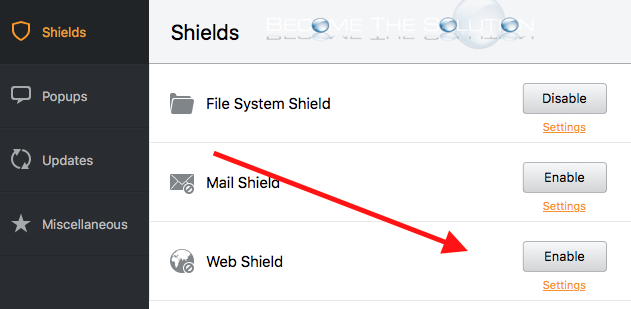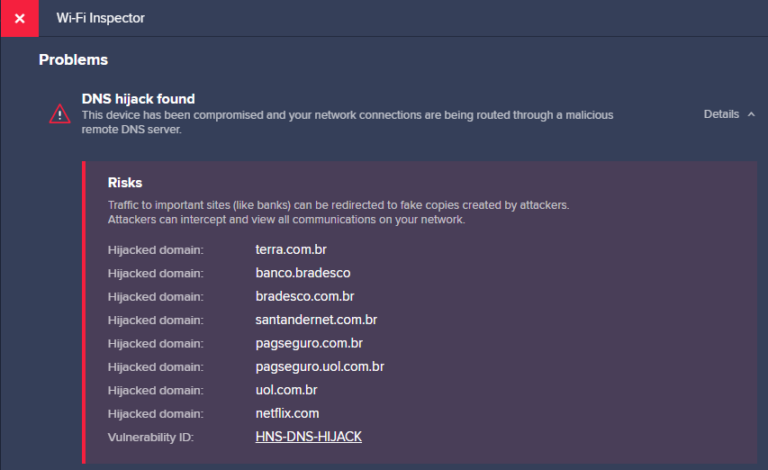

- #AVAST BLOCKING SITES BECAUSE SERVER CERIFICATES UPDATE#
- #AVAST BLOCKING SITES BECAUSE SERVER CERIFICATES 32 BIT#
- #AVAST BLOCKING SITES BECAUSE SERVER CERIFICATES SOFTWARE#
- #AVAST BLOCKING SITES BECAUSE SERVER CERIFICATES FREE#
- #AVAST BLOCKING SITES BECAUSE SERVER CERIFICATES WINDOWS#
#AVAST BLOCKING SITES BECAUSE SERVER CERIFICATES WINDOWS#
Starting with Windows Server 2016, this file may have to be configured as a process exclusion within the antivirus software. Vmsp.exe ( %systemroot%\System32\Vmsp.exe) Vmwp.exe ( %systemroot%\System32\Vmwp.exe) This file may have to be configured as a process exclusion within the antivirus software. Vmms.exe ( %systemroot%\System32\Vmms.exe)
#AVAST BLOCKING SITES BECAUSE SERVER CERIFICATES SOFTWARE#
If antivirus software is running on your file servers, any Server Message Block protocol 3.0 (SMB 3.0) file shares on which you store virtual machine files. The default Cluster Shared Volumes path, if you're using Cluster Shared Volumes, and any of its subdirectories:Īny custom virtual machine configuration directories, if applicableĪny custom virtual hard disk drive directories, if applicableĪny custom replication data directories, if you're using Hyper-V Replica %SystemDrive%\ProgramData\Microsoft\Windows\Hyper-V\Snapshots The default snapshot files directory, if it's used, and any of its subdirectories: %Public%\Documents\Hyper-V\Virtual Hard Disks The default virtual machine virtual hard disk files directory, if it's used, and any of its subdirectories: The default virtual machine configuration directory, if it's used, and any of its subdirectories:
#AVAST BLOCKING SITES BECAUSE SERVER CERIFICATES UPDATE#
The processes that create, open, or update the file: vmms.exe The processes that create, open, or update the file: vmwp.exe The processes that create, open, or update the file: vmms.exe, vmwp.exe, vmcompute.exe. Virtual Hard Disk v2 snapshot file ( *.avhdx) Virtual Hard Disk snapshot file ( *.avhd) FilesĪll directories that contain the following files: For a list of Windows Defender automatic exclusions, see List of automatic exclusions. There's no learning effect when you don't know what's going on because Windows behaves kind of mysterious.Ĭoncerning the Avast proxy: After I installed Avast I created a rule for AvastSvc.exe which is the proxy.If you are using Windows Defender as an anti-malware solution on your server, you may not need to configure additional exclusions. If it's getting too complicated I'll try a 3rd party firewall. Maybe there's another front end for the Windows Firewall that is capable of doing this.īut you're right. He says that it's almost impossible to reveal a service that is hiding behind svchost when it's only running for some Milliseconds. I read a post by the Author of Windows Firewall Notifier. I like the fact that you can set up rules for specific services, not only for svchost in general.īut I have to give in that it's really hard to figure out what services behind svchost are trying to access the internet. Until now I'm okay with the Windows Firewall and Windows Firewall Notifier. Sorry.īut thanks for the link AmazingM! It will take some time to read, but I found the answers to many of my questions on the first page! Oooops! I could have found that thread by using the forum search. Is it possible to find out the services behind svchost and what they are trying to send to the internet?
#AVAST BLOCKING SITES BECAUSE SERVER CERIFICATES FREE#
I want to allow these connections, but without giving svchost free access to the internet. I could leave it as it is, but I'm not paranoid as I said before and I know that most of the call home's are intended for debugging for example and most of them serve a good purpose. Some of them are from svchost trying to access Microsoft-Servers. It's no problem to create these rules manually, I just wonder why there are no pre-defined rules for such essential things.Īfter having set up these rules everything works fine, but there are some blocked outbound connections in the firewall log.

(I couldn't even find a built-in rule for Windows Update, btw). Is there no built-in rule for something important like ICMPv4?! I searched for a built-in rule that would enable ICMPv4, but couldn't find it! The next thing I checked was ICMPv4 (Ping, tracert, etc. So I created a rule for DNS manually and then everything worked as expected, I could surf the web. The built-in rule for DNS does not work!!! Tested this on a second Computer with Windows 7. The interesting thing is that no DNS request worked (neither in Firefox, nor in the command prompt with i.e. The only built-in rules that I activated is "core networking - DNS and DHCP" and I created a new rule for Firefox, TCP 80 and 443 to be able to surf the web. When I set up the first rules I encountered some porblems: I'm doing this not because I'm paranoid but because I want to know what's going on and how stuff works. Now I'm playing around with Windows Firewall Notifier, TCPView and Process Monitor to set all the rules that are necessary manually. I set the Firewall to whitelist mode (block all outbound) and deactivated all the built-in exception rules.
#AVAST BLOCKING SITES BECAUSE SERVER CERIFICATES 32 BIT#
I use Windows 7 Professional 32 Bit with the Windows Firewall and Avast Free Antivirus.


 0 kommentar(er)
0 kommentar(er)
